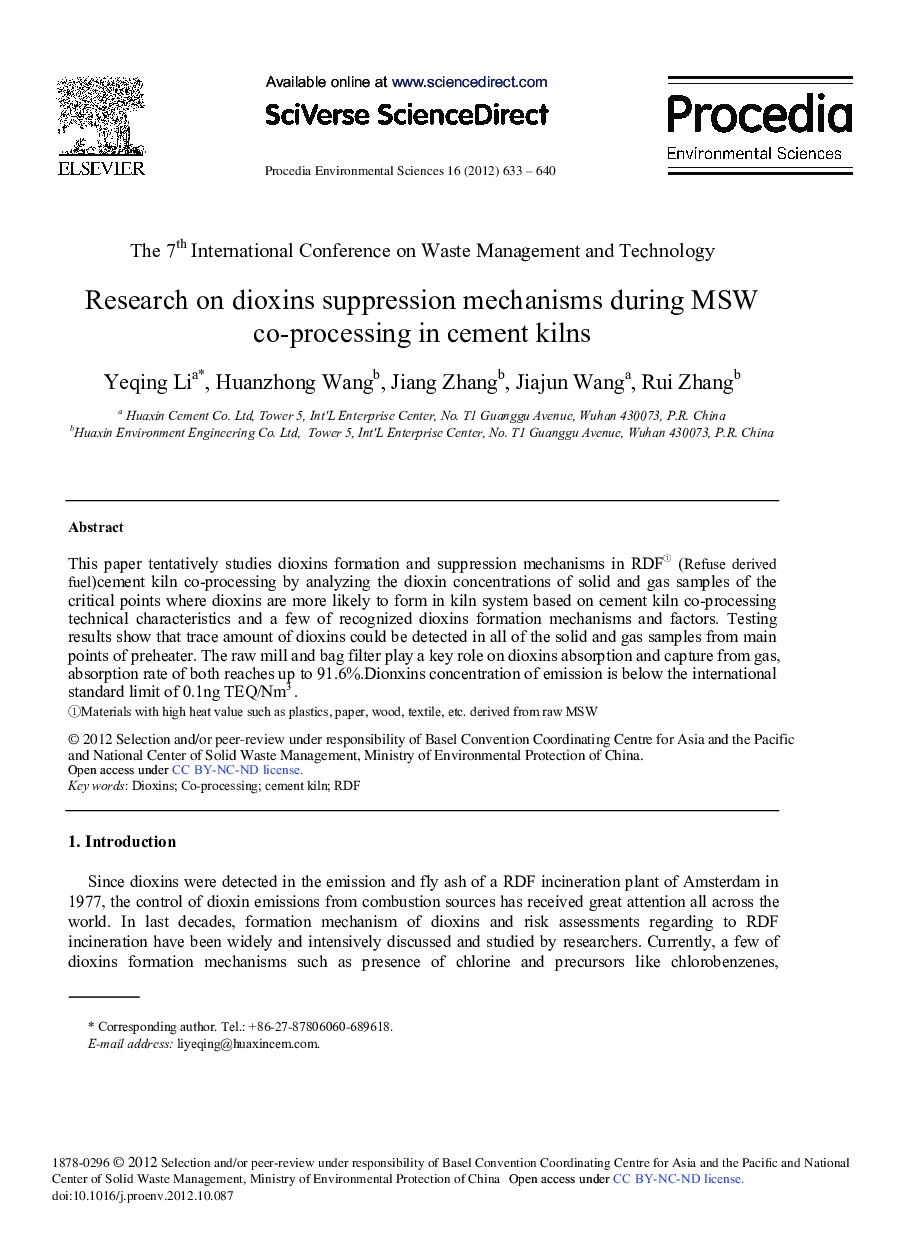| Article ID | Journal | Published Year | Pages | File Type |
|---|---|---|---|---|
| 4402715 | Procedia Environmental Sciences | 2012 | 8 Pages |
This paper tentatively studies dioxins formation and suppression mechanisms in RDF (Refuse derived fuel)cement kiln co-processing by analyzing the dioxin concentrations of solid and gas samples of the critical points where dioxins are more likely to form in kiln system based on cement kiln co-processing technical characteristics and a few of recognized dioxins formation mechanisms and factors. Testing results show that trace amount of dioxins could be detected in all of the solid and gas samples from main points of preheater. The raw mill and bag filter play a key role on dioxins absorption and capture from gas, absorption rate of both reaches up to 91.6%.Dionxins concentration of emission is below the international standard limit of 0.1ng TEQ/Nm3. Materials with high heat value such as plastics, paper, wood, textile, etc. derived from raw MSW
